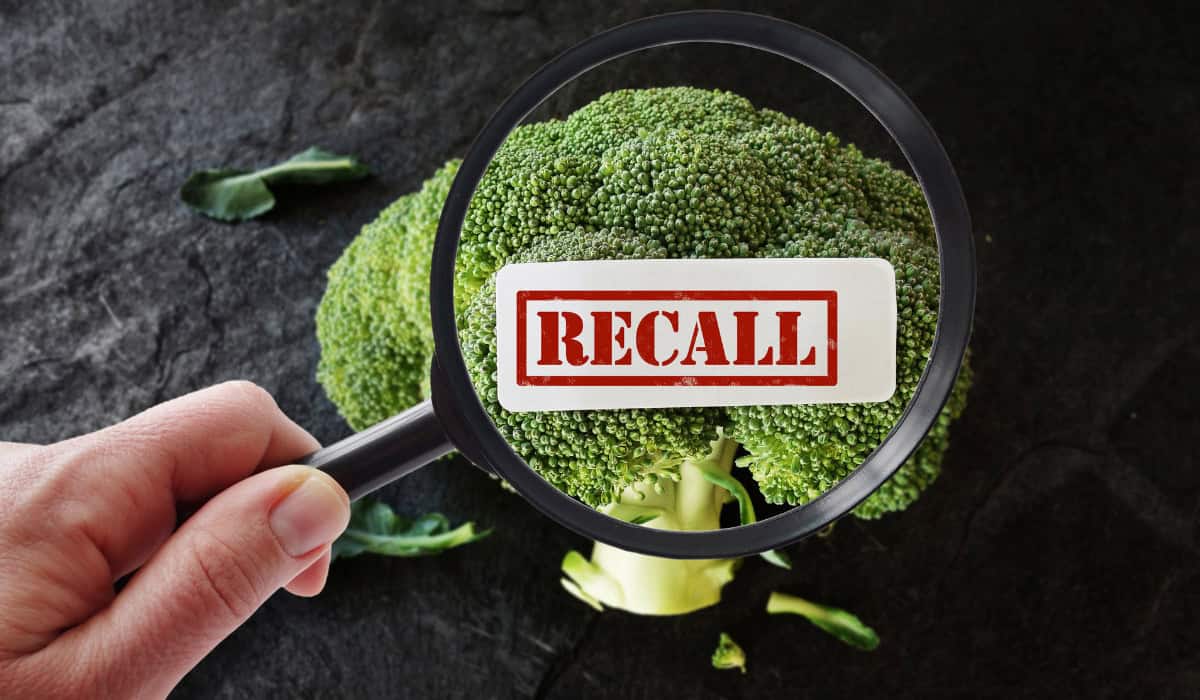
©zimmytws via Canva.com
Should Consumers Be Worried About All These Product Recalls?
2024 headlines have so far been dominated by grocery product recalls.
In March, Trader Joe’s recalled packages of cashews due to salmonella contamination fears. One month later, the popular retailer issued a similar recall for its basil products for the same concerns.
“We don’t take any chances when it comes to product safety and quality,” the company stated on its website about the recall.
A similar product recall was issued at Walmart stores nationwide last month when the retail giant recalled more than 16,000 pounds of ground beef due to E. coli contamination concerns.
The Pennsylvania-based Cargill Meat Solutions manufactured the beef for Walmart and other stores, but it’s unclear when the E. coli infection was found. So far, there have been no documented health effects from the exposure.
Other product recalls this year include:
- Fresh Start Produce Sales’ recall of cucumbers over salmonella concerns
- ALDI’s recall of four private-label cream cheese spreads
- Hy-Vee’s recall of two private-label cream cheese products
- H-E-B’s ice cream recall for metal contamination
- Palmer Candy’s recall of its products for salmonella contamination
- East West Tea Company’s recall of nearly 1 million Yogi tea bags for pesticide contamination
Overall, U.S. product recalls increased by 8% in the first quarter of 2024 compared to the previous quarter. In the first quarter, Sedgwick recorded 909 recalls across five primary industries, the most in a single quarter in over five years.
The U.S. Food and Drug Administration (FDA) issued 134 recalls in the first quarter of 2024, a 27.6% rise from Q4 2023. In comparison, the number of recalls from the USDA’s Food Safety and Inspection Service (FSIS) in the first quarter decreased by 31.6% to 13. However, the weight of the FSIS recalls did rise by 22.1% to 378,055 pounds.
In the last five years, there have only been three quarters with more FDA recall occurrences. Undeclared allergies accounted for 51 of the total FDA recalls, making them the primary cause of food recalls.
According to Sedgwick, the Federal Trade Commission (FTC), the USDA, and the FDA are attempting to protect customers and give them accurate information about the food they are buying.
Despite this uptick in recalls, experts say that this increase in product recalls is a sign of a robust system of checks and balances.
“Regulators have started off 2024 as expected, continuing the high rate of enforcement activity and introducing new regulations and rules to improve product safety amidst an ever-growing list of risks,” said Chris Harvey, senior vice president of brand protection for Sedgwick.
There isn’t just one explanation for the rise in recalls because allergies, diseases, and safety issues have always existed, but one possibility is that stricter laws are now in place to encourage more recalls.
The biggest change to food safety regulations in many decades went into effect in 2011 with the passage of the Food Safety Modernization Act, which gave the FDA more power to order manufacturer recalls and implement stricter regulations.
Additional stringent regulations for product safety resulted from the COVID-19 pandemic. According to MasterControl, the FDA had to enact stricter regulations to ensure that items were safe because the agency was forced to conduct a large portion of its testing and inspections remotely during the pandemic’s peak.
“As product recalls reached a seven-year high in 2023, it is clear that strict regulatory enforcement is more than a passing trend. 2024 will see continued oversight from regulators, policymakers, and consumers, making it essential for businesses to plan and practice for product recalls and in-market crises,” Harvey said in Sedgwick’s press release.
Furthermore, according to Sedgwick, businesses could also anticipate further assertive proceedings from the FTC and the Consumer Product Safety Commission (CPSC) in 2024. There’s a chance that 2024 will see fines surpass the record $55.3 million of 2023, based on the $16 million in fines assessed by the CPSC in the first quarter.
Discussion Questions
Are the increased recalls cause for consumer concern?
Is there anything companies should be doing to give more transparency to consumers about the foods they purchase?
Are federal regulatory companies doing all they should be doing to keep consumers safe?
